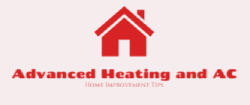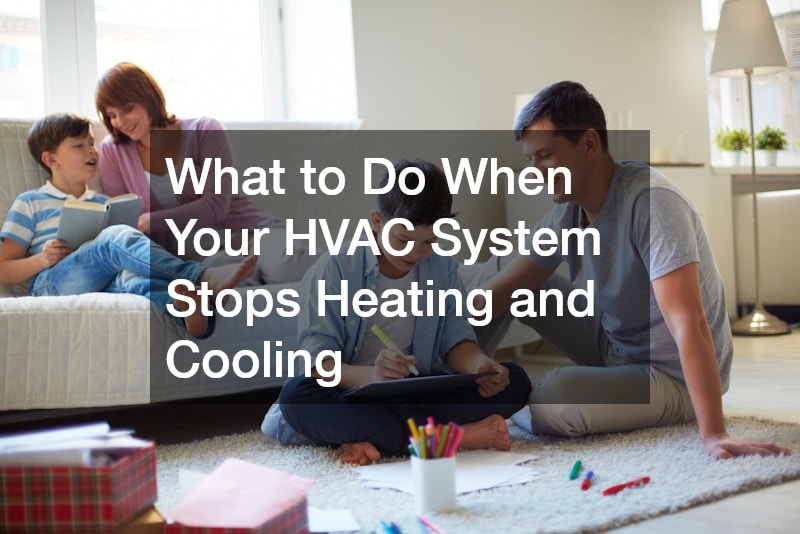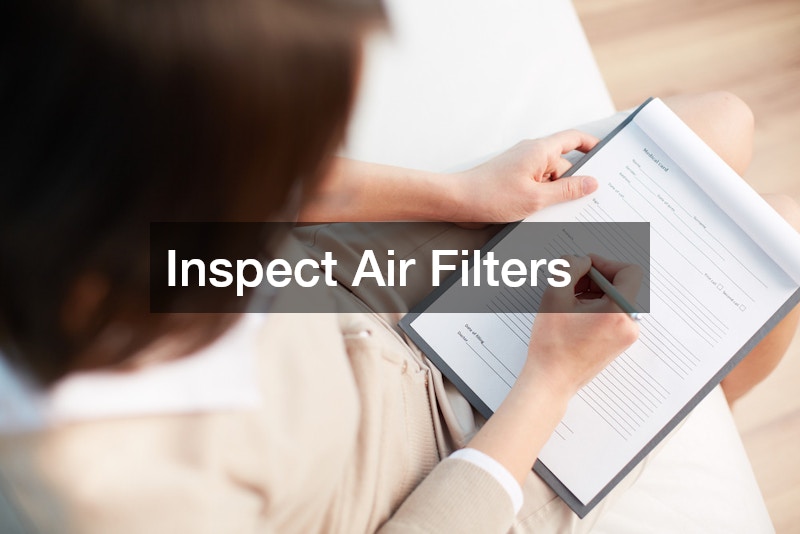Your HVAC system is the backbone of your home’s comfort, working year-round to keep you warm in the winter and cool during the summer. However, there comes a time when every HVAC system, no matter how well maintained, might encounter issues that lead it to stop heating and cooling effectively. When this happens, it can cause a great deal of inconvenience, especially during extreme weather conditions. The last thing you want is for your home to become unbearably hot or freezing cold due to a malfunction. Understanding what steps to take when your HVAC system stops working efficiently can save you both stress and money.
In this comprehensive guide, we’ll walk you through the essential steps you should follow if your HVAC system suddenly stops heating and cooling. We’ll explore common troubleshooting measures you can attempt yourself and when it’s time to call a professional HVAC contractor. Additionally, we’ll cover important considerations, such as how to know if the problem lies with your heat pump or furnace, and the importance of regular maintenance and repairs. Whether you’re dealing with a minor issue or a major breakdown, being prepared and knowing how to react is key. So, let’s dive in and ensure you’re ready for any HVAC malfunction that comes your way.
When your system stops working, there are several possibilities to consider: the thermostat, the power supply, or even internal issues that require expert attention. Simple DIY fixes may resolve certain problems, while others will need professional HVAC services. While the complexities of HVAC systems can be intimidating, the goal here is to empower you with the knowledge to act quickly and wisely. With the right steps and some basic understanding, you can address minor issues confidently or seek the proper professional assistance for more significant problems.
Here’s a step-by-step breakdown of what you should do when your HVAC system stops heating and cooling effectively, along with helpful insights into ensuring it operates optimally year-round.
Check the Thermostat Settings
One of the first things you should do when your HVAC system stops heating and cooling is to check your thermostat settings. This small but crucial step often goes overlooked. Make sure the thermostat is set to the correct mode: heating or cooling, depending on the season. You’d be surprised how often simple thermostat misconfigurations can cause major inconveniences.
Next, verify that the temperature setting is appropriate. Sometimes, a family member may have unknowingly adjusted the thermostat, causing the HVAC system to stop working as expected. If your thermostat is programmable, ensure that the programmed schedule aligns with your preferences. Also, don’t forget to check the batteries if your thermostat runs on them; a dead battery can prevent the entire system from functioning.
If everything appears to be in order with the thermostat but the system still isn’t working, it might be time to consider other components or call for professional HVAC services. A malfunctioning thermostat may indicate deeper problems that need professional troubleshooting.
Ensure the Power Supply Is Working
Your HVAC system needs a reliable power supply to function. Sometimes, your system may stop heating and cooling simply because of a power issue. Head to your electrical panel and check if any circuit breakers have tripped. If you find a tripped breaker, reset it and see if that resolves the problem.
It’s crucial to note that repeatedly tripping breakers may indicate a more significant electrical problem. In such cases, calling an HVAC contractor or an electrician would be wise. Additionally, some systems have safety switches or emergency shut-off controls near the outdoor unit. Ensure these switches haven’t been inadvertently turned off.
If you’ve confirmed that your system is receiving power but it still doesn’t work, the issue might be internal, requiring an HVAC company for professional diagnostics and repairs.
Inspect Air Filters
Another common reason an HVAC system stops heating and cooling is dirty air filters. Over time, dust and debris can accumulate, restricting airflow and causing the system to work inefficiently or not at all. Inspect your air filters and replace them if they appear dirty.
Dirty filters not only impede performance but can also lead to more significant problems with your unit, such as overheating or freezing up. Ideally, filters should be replaced every 1-3 months, depending on usage and the type of filter you use. This simple maintenance task can prevent many issues and extend the life of your system.
If changing the filters doesn’t restore your HVAC’s performance, the problem may be more complex. It might be time to consider scheduling a professional ac repair to diagnose the underlying cause.
Check for Blocked Vents and Registers
Blocked vents and registers can cause your HVAC system to stop heating and cooling effectively. Walk around your home and ensure that all supply and return vents are open and unobstructed. Furniture, rugs, or curtains blocking these vents can severely impact airflow, making your system work harder and less efficiently.
Even if you haven’t recently rearranged furniture, it’s worth checking periodically. Dust and debris can also accumulate around vents, further blocking airflow. Keeping these areas clean and unobstructed ensures optimal performance of your HVAC system.
If unblocking the vents doesn’t solve the issue, it might point to more significant ductwork or internal system problems that will require heating and air conditioning professionals.
Listen for Unusual Noises
When an HVAC system stops heating and cooling properly, it often produces unusual noises. Grinding, banging, or screeching sounds are indicators of mechanical problems. These noises can stem from issues like loose parts, failing motors, or broken components within the system.
Take note of any unusual sounds and where they seem to be coming from. This information will be helpful if you need to call an HVAC company for repairs. While some noises may not seem urgent, ignoring them could lead to more significant damage and costly repairs down the line.
It’s essential to contact a heat pump repair service or an HVAC technician immediately if you hear loud or persistent noises, as this could indicate a severe malfunction.
Inspect the Outdoor Unit
Sometimes, when your HVAC system stops heating and cooling, the problem might be with the outdoor unit. Head outside and inspect the unit for any visible issues, such as dirt, debris, or overgrown vegetation surrounding it. Clear away any obstructions to ensure proper airflow.
Check the condenser unit’s fins for signs of bending or damage. Bent fins can restrict airflow and reduce efficiency. You can use a fin comb to straighten them, but be gentle to avoid further damage. Also, look for signs of ice buildup on the unit, as this could indicate a refrigerant leak or airflow issue.
If the outdoor unit appears damaged or isn’t running at all, it’s time to call a local air conditioning repair professional for a comprehensive check.
Test for Airflow Issues
Poor airflow can cause your HVAC system to stop heating and cooling effectively. To test for airflow, place your hand near the supply vents to feel how much air is coming out. If the airflow feels weak or non-existent, there may be an issue with your blower fan, ductwork, or air handler.
Airflow problems can stem from a variety of causes, such as dirty evaporator coils, clogged ductwork, or a malfunctioning blower motor. While some issues, like cleaning coils, may be addressed on your own, more complex problems will require the expertise of an HVAC contractor.
It’s best to address airflow issues promptly, as they can strain your system and lead to higher energy bills and potential breakdowns.
Monitor for Leaks or Moisture
Leaks or excess moisture around your HVAC system are red flags. Check the area around your indoor unit and look for signs of water leakage. This could indicate a clogged condensate drain line, which can be easily cleaned. However, if you notice refrigerant leaks or significant pooling, it’s crucial to call a professional.
Refrigerant leaks can be hazardous and lead to inefficient cooling or heating. Only certified HVAC services should handle refrigerant-related repairs, as they require specialized knowledge and equipment. Ignoring leaks can cause damage to your home and create health risks.
Promptly addressing any signs of moisture or leaks can prevent more serious issues, such as water damage or mold growth.
Address Unresponsive or Erratic Performance
If your HVAC system turns on and off frequently or doesn’t respond at all, there could be an electrical issue or a malfunction with the internal components. Short cycling, where the system turns on and off rapidly, often points to an oversized unit or a faulty thermostat.
Unresponsive units might be due to blown fuses, tripped circuit breakers, or failing components. If you’ve already checked the power supply and thermostat and the problem persists, it’s time to bring in a professional for diagnosis. An experienced HVAC company can inspect the electrical connections and replace faulty parts.
Leaving electrical issues unchecked can lead to more severe damage, so prompt attention is crucial.
Consider the Age of Your System
Sometimes, when your HVAC system stops heating and cooling, the underlying issue is its age. Most HVAC systems have a lifespan of 10-15 years. If your system is approaching or has surpassed this range, you may experience more frequent breakdowns and decreased efficiency.
Older systems are also less energy-efficient, leading to higher utility bills. If your HVAC system has become unreliable, it might be time to consider replacing it rather than investing in repeated ac repair. Modern units come with advanced features that can save energy and improve comfort.
Consult with an HVAC contractor to discuss your options. They can perform a system assessment and recommend the best solution for your home.
Maintain Regular Service and Inspections
Preventive maintenance is key to avoiding situations where your HVAC system stops heating and cooling. Schedule routine service appointments with a trusted HVAC contractor to keep your system in top shape. Regular maintenance tasks include cleaning coils, inspecting ductwork, and checking for refrigerant leaks.
During these service appointments, your technician can also identify potential issues before they become major problems. A well-maintained system not only performs better but also lasts longer, giving you peace of mind throughout the year.
By investing in preventive care, you reduce the risk of unexpected breakdowns and extend the lifespan of your heating and air conditioning system.
Explore Alternative Solutions
If your current system is constantly failing or doesn’t meet your home’s needs, consider upgrading to a more efficient system, like a Variable Refrigerant Flow (VRF) system. VRF systems provide individualized comfort control, making them ideal for homes with varying heating and cooling needs.
These systems are energy-efficient and can handle multiple zones, which might be a better fit if your current HVAC setup is outdated or struggling. Local ac repairs professionals can evaluate your home and advise whether a VRF system is the right solution for your needs.
Making this investment can offer long-term benefits, such as lower energy costs and increased comfort.
Experiencing a sudden breakdown of your HVAC system can be incredibly stressful, but understanding what steps to take can make a world of difference. From checking simple things like thermostat settings and air filters to inspecting your outdoor unit and monitoring for leaks, these actions are your first line of defense when your HVAC system stops heating and cooling. While some issues can be resolved with DIY measures, others will inevitably require the expertise of a seasoned HVAC company or professional.
Regular maintenance and proactive care are essential for preventing many common HVAC issues. Even if your system seems to be functioning well, investing in annual inspections can catch potential problems early, saving you money and inconvenience in the long run. Additionally, considering alternative solutions like VRF systems can future-proof your home’s comfort, especially if your current system is outdated or inefficient.
When it comes to HVAC concerns, don’t hesitate to reach out for professional support. HVAC services are there to ensure your home remains a haven of comfort, regardless of the season. Remember, whether it’s simple troubleshooting or complex furnace repairs, taking prompt action can make all the difference. So, stay prepared and proactive, and you’ll be better equipped to handle any HVAC challenge that comes your way. Reach out to experts in your area as soon as possible if your HVAC unit stops heating and cooling.





